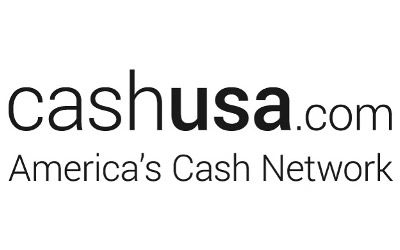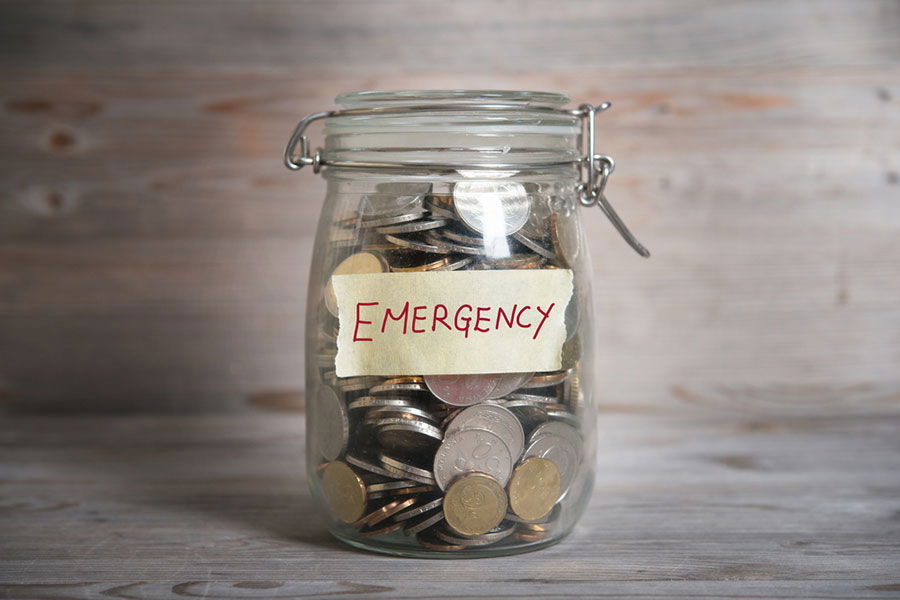If you’ve recently hit a financial rough patch, then a personal loan can help you get back on your feet. But if you’re unemployed and have bad credit, getting approved for personal loans becomes substantially harder, though not impossible.

To qualify for personal loans, you need to understand what lenders are looking for and find a way to make your application more attractive. You also need to know what lenders are willing to work with borrowers in your situation.
Let’s look at how you can get a personal loan, even if you’re unemployed and have bad credit. We’ll also share some alternatives you can consider if personal loans aren’t an option for you.
How to Secure a Personal Loan While Unemployed
Securing a personal loan during periods of unemployment might seem challenging, but it is feasible with the right approach. Some lenders focus more on the reliability and regularity of income rather than solely on employment status. Demonstrating a steady flow of income from alternative sources, including Social Security benefits, alimony, child support, or a partner’s income, could potentially meet lender requirements.
It’s essential to present your income sources with clarity and provide comprehensive documentation to support your application. This could include bank statements, benefit statements, or any legal documents that verify your income. Effectively showcasing your ability to meet monthly payments through these alternative income streams can significantly enhance the likelihood of loan approval.
4 Personal Loans to Consider for Bad Credit
If you’re unemployed and have bad credit, some online lenders will still be willing to work with you. Listed below are four lending marketplaces you can consider.
1. MoneyMutual
MoneyMutual is a lending marketplace that specializes in working with borrowers that have bad credit. You could qualify for a loan of up to $2,500 and receive the funds within 24 hours.
2. CashUSA
CashUSA stands as a notable online lending platform, known for its dedication to serving individuals with financial challenges, particularly those with debt or low credit scores.
3. BadCreditLoans
BadCreditLoans is an online lending marketplace specializing in providing bad credit loans. They can introduce you to a range of lenders through a straightforward online loan application.
4. PersonalLoans.com
PersonalLoans.com offers an extensive selection of loan options, making it easier for individuals to find a match for their specific financial situation.
How to Compare Lenders for Bad Credit Loans
Knowing how to compare personal loan lenders, especially when you’re in a financial emergency, can be really challenging. No matter your situation, however, there are some key details that you should keep in mind when comparing any loan offer.
We’ve provided a detailed run through of these points below to help you make the best decision for your situation:
Interest Rate & APR
When you receive a quote for a loan, you’ll usually see both an interest rate and an APR percentage. The interest rate on your loan reflects the fundamental cost of the loan, representing the value you’ll owe to pay it back.
The APR rate, however, gives you a better sense of the overall true cost of any loan. This is because the APR includes the interest rate in addition to the loan fees.
You will also want to look out for the type of interest rate on any loan offer. Loan rates are either variable or fixed, and deciding which is best for you can be tricky. A variable interest rate can fluctuate in accordance with wider market trends during the course of your loan, potentially resulting in an increase on the cost of your loan. A fixed rate, on the other hand, won’t ever change.
Fees
Make sure to account for all the fees included in any loan offer. Most lenders will charge certain fees as standard, but others will vary depending on whether you’re borrowing from a bank, credit union or online lender. Here are some of the most common fees:
- Origination fee: A common upfront fee a lender may charge for processing your loan.
- Prepayment penalty: Most lenders will charge a penalty if you pay off your loan before the close of the agreed term.
- Late-payment fee: Fees for missing your monthly payments will vary widely from lender to lender. So, make sure to ask, no matter how certain you are that you can make the payments on time.
Loan Term
Many lenders will offer personal loans that come with short, long, or flexible terms. Typically, personal loans come with terms ranging from 12 months to 84 months. However, certain lenders may offer an extended loan period.
It’s a good idea to get an ideal range for your loan term before comparing quotes. Remember that a long-term loan could result in lower monthly payments, but it will also mean paying more in interest over the course of the loan.
The Risks of Emergency Loans
Loans that come with very high interest rates and short-terms can be tempting to those who are unemployed or suffering from a poor credit score.
Often referred to as emergency loans, they’re commonly used to cover unexpected expenses such as medical bills, car repairs or emergency home repairs. While these short-term loans can help out in a pinch, they often get in the way of improving long-term financial habits, hindering our ability to move out of debt long-term.
The danger with short-term emergency loans, such as payday loans and title loans, is that they can lead to debt spirals. This is where you find yourself borrowing a new loan just to pay off a loan you’ve taken out previously because of the unmanageable loan conditions. Many companies offering these loans are predatory and look to take advantage of those in poor financial circumstances.
That’s why when you’re looking for alternative loans for the unemployed, you must responsibly assess your appetite for risk and do everything possible to avoid taking out an emergency loan.
How Lenders Evaluate Loan Applications
Unsecured personal loans are riskier than other types of loans because they don’t require any collateral. So if you default on the loan payments, your lender will take a financial loss on that loan.
That’s why lenders want to see that a borrower can repay the loan amount. So, when you apply for a loan, most lenders will focus on the following criteria:
- Source of income: You don’t have to be employed to take out a personal loan, but you do need to have proof of income. This income can include disability payments, Social Security, and more.
- Debt-to-income ratio: Lenders will calculate your debt-to-income ratio by dividing your total monthly debt payments by your monthly income. If your debt-to-income ratio is high, this can indicate you would have a hard time managing another monthly loan payment.
- Credit history: And finally, lenders will consider your credit history. This history includes your credit score, payment history, and any recent charge-offs on your account.
Personal Loan Alternatives
After it’s all said and done, what if you’re unable to qualify for a personal loan? How can you access the cash you need in the meantime? Listed below are four alternatives you can consider.
- Secured loans: Personal loans for unemployed people can be challenging to qualify for, since they don’t require borrowers to put down any collateral. If this is a problem for you, then you can try applying for a secured loan. With secured loans, you use your home or another asset as collateral to guarantee the loan.
- Credit card cash advances: If you already have a credit card, then you may not need a personal loan. Most credit cards will let you take out a cash advance. However, if you choose to go this route, you need to be careful. A credit card cash advance comes with high interest rates, so if you can carry a balance, this will cost you a lot of money in interest.
- HELOC: If you have equity in your home, you can take out a home equity line of credit (HELOC). A HELOC is a revolving line of credit that you can borrow money from as you need it. But this can be a risky move because if you default on the payments, you could end up losing your home.
- Look for a cosigner: If you’re having a hard time qualifying for a personal loan, you can try applying with a creditworthy cosigner. Not only will this help you get past your low credit score, that person’s income will also be considered on the loan application.
While exploring these alternatives, it’s important to stay clear of predatory lending practices often associated with payday loans and car title loans. These options can lead to a cycle of debt or, worse, loss of personal assets. As challenging as your financial situation may be, prioritizing long-term stability over quick fixes can help you navigate through tough times without exacerbating your financial stress.
Frequently Asked Questions
Can I borrow money if I am unemployed?
Yes. It is possible to get a loan even if you’re unemployed. All the lenders we’ve analyzed in this article provide loans to those who are currently unemployed. However, the catch is that you generally need to provide proof of some form of income to qualify for a bad credit loan.
Social Security, unemployment benefits, child support, spousal income or even investments all qualify as alternative proof of income for unsecured loans.
Can I get a loan with bad credit?
Yes. You can get a loan with a bad credit score, and many online lenders actually specialize in bad credit loans. Even with a bad credit history, you can find a host of different lenders. However, the reality is that you’ll also have to settle for higher interest rates. Additionally, you may have higher penalties and fees if you miss any payments.
What is the easiest type of loan to get with bad credit?
The lending markets presented in this article represent some of the most accessible loan options available today. Short-term personal loans, secured loans, and co-signed loans are some of the easiest loan types to qualify for when you’ve got bad credit.
Always make sure, however, that any company you consider a loan offer from is safe and reputable. There are a lot of dishonest loan companies out there who target people with bad credit. So, if a deal seems too good to be true, it probably is.
What is the definition of bad credit?
The primary credit-scoring model used in financial services is the FICO score. FICO is a software company that gathers financial data from the three major credit bureaus to discern your overall financial profile.
Individual lenders might choose to define their credit breakdowns differently. However, the FICO score is industry standard and will give you an accurate baseline of your credit situation.
- 800–850: Exceptional credit
- 740–799: Very good credit
- 670–739: Good credit
- 580–669: Fair credit
- 0–580: Bad credit
Can I get a loan without proof of income?
Most loans for the unemployed require proof of some alternative form of income. However, if you can’t provide any proof of income, then your best bet for a personal loan will be a secured loan.
Generally speaking, secured loans don’t require proof of income to qualify. This is because these loans are secured by collateral, which acts as protection for the lender if you default on your payments. Because you’re providing collateral against the loan, the lender won’t necessarily need to see that you’ve got a regular income stream.
A secured loan can be a risky decision when you’re under financial stress. So, remember to responsibly evaluate all of your options and only ever sign for a loan that you’re confident you can repay.
Summary
If you’re unemployed and have a bad credit score, it’s still possible for you to apply for a personal loan. If you can show lenders that you can handle the monthly payments, they will be more willing to lend you the money you require.
However, just because it’s possible doesn’t mean it’s the right choice. If you’re already in a precarious financial position, it may not be a good idea to add another monthly payment into the mix.
You might consider alternatives ways to access the money you need. For example, taking out a cash advance or a HELOC may be better alternatives. That way, you can get a little financial breathing room until you’re able to get back on your feet.








